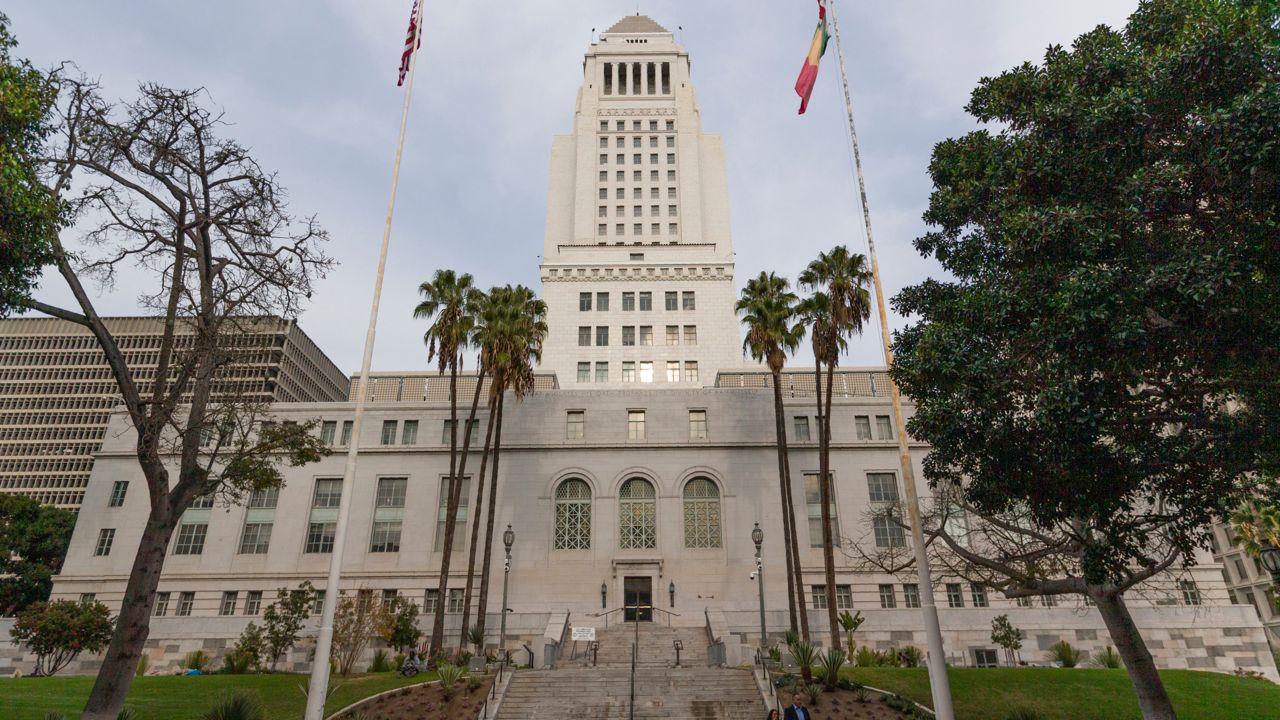LOS ANGELES (CNS) — In a step toward reforming Los Angeles’ lobbying ordinance for the first time in decades, the City Council’s ad hoc committee on governance reform recommended approval Monday of an ethics commission report that would place stricter rules on people or organizations looking to impact city policy.
The city’s Municipal Lobbying Ordinance has not been comprehensively updated since its adoption in 1994, with two prior recommendations by the ethics commission expiring after the council did not take action on them.
But the racist audio leaked last October involving three council members — two now former members — spurred the creation of the special council committee, which took up the ethics commission’s May 2022 recommendations on Monday.
The committee, chaired by Council President Paul Krekorian, signed off on the recommendations with several amendments. Krekorian noted that lobbying reform was just one of several proposals that were left “to die in the darkness by never being referred out of the rules committee.”
That committee had formerly been chaired by Nury Martinez, the former Council President who resigned in October for taking part in the racist conversation. Former Councilman Gil Cedillo and current Councilman Kevin de León also took part.
Krekorian, who did not mention Martinez by name, promised to “one-by-one” take up the topics for discussion.
“We’re at least going to make every effort to bring them to the light of day,” Krekorian said.
The commission recommended setting a compensation limit of $5,000 received in a calendar year before someone must register as a lobbyist. Of the 10 largest cities in the country, only Los Angeles does not have a lobbyist registration threshold that is based on compensation.
Currently, the city defines a lobbyist as anyone who engages in lobbying activity for 30 or more hours in a three-month period, but the commission noted it poses a compliance and enforcement challenge because tracking hours can be difficult.
The change would be important in order to more “capture individuals that are paid substantial amounts of money that are spending little amounts of time reaching out to city officials,” according to David Tristan, executive director of the ethics commission.
Another recommendation would require lobbyists to identify their positions on the matters about which they are lobbying.
On fundraising, the commission called for requiring disclosures when lobbyists distribute political fundraiser solicitations to 15 or more people, a reduction from the current 50-copy threshold.
Several neighborhood council representatives called into the meeting to point out a recent incident in which a lobbyist spoke at a neighborhood council meeting without identifying himself. One of the commission’s recommendations — later amended by the committee to include all city personnel — was for lobbyists to disclose themselves and the identity of their client when communicating in any way with neighborhood councils.
Regarding gifts, the commission called to close a loophole that would allow a client of a lobbyist to make gifts, as that restriction applies to the lobbyists but not to their clients — who have the “greatest interest in the outcome of a city decision.”
The commission had also proposed broader exemptions for nonprofits, but the committee decided to eliminate a $2 million annual gross receipts threshold as well as a condition that organizations providing “assistance to disadvantaged people without charge or at a significantly below-market rate” would be exempt from registering as a lobbying entity.
Other amendments made by the committee to the report include:
- mandating lobbying records are maintained for five years;
- requiring that lobbyists disclose themselves and their client when giving public comment or communicating with city personnel;
- prohibiting lobbyists from delivering or bundling campaign contributions for elected officials or candidates for office;
- including issues not presented in a council file or official report in the term “city matter,” if a lobbying entity or their client brings it up, and
- removing clients of lobbyists from being defined as a “restricted source” under the governmental ethics ordinance.
The committee also sought a report on how the city could mandate disclosure of anyone who is being compensated to speak on an issue at a public meeting, beyond lobbying activity.
Councilwoman Nithya Raman, vice chair of the committee, who proposed most of the amendments in an October 2022 motion, called the ethics commission’s recommendations a “thoughtful and necessary set of improvements to the municipal lobbying ordinance.”
“We’re giving the public more of a window into what happens at City Hall, about how decisions are made, about who is influencing those decisions,” Raman said. “They have a right to know. I feel like there is no clearer moment, no more urgent moment for us to take action than right now.”
Separately, the committee voted 6-0 to oppose Senate Bill 52, proposed legislation in the state legislature to establish an independent redistricting commission in Los Angeles. The legislation, introduced in December, appears to run parallel to the City Council’s own efforts to reform its redistricting process.
John Wickham, assistant chief legislative analyst, told the committee that the office was in the process of preparing a detailed report on the process of creating an independent redistricting commission. He said the council would have to consider several key issues, including the length and term of the commission, the number of commissioners, how much independence the commission would have and how to integrate the potential expansion of the council with changes in the redistricting process.
Even if SB 52 is passed, it is unclear whether it would immediately apply to the city of Los Angeles because the redistricting process is defined in the city charter — which can only be amended via an election.
Krekorian said that a discussion over redistricting reform would likely take several more meetings.



